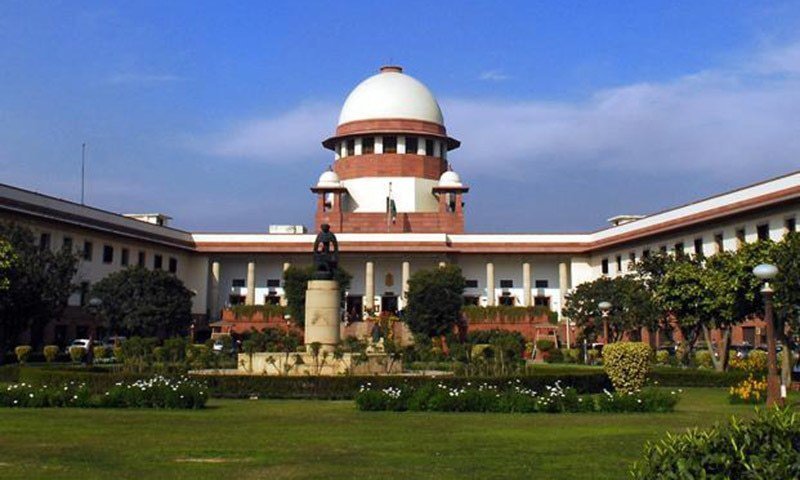Supreme Court asks for impact study of Consumer Protection Act, 2019

Inaction of the governments in appointing president and members/staff of districts and state consumer disputes redressal commission and inadequate infrastructure across India has led Supreme Court to direct centre to conduct legislative impact study of Consumer Protection Act 2019.
Ankur Saha
The legislative intent behind the Consumer Protection Act, 2019 is empowerment of the consumers. However, the ground reality is quite different as there is little endeavor to translate this legislative intent into an administrative infrastructure with requisite facilities, members and staff to facilitate the decision on the consumer complaints. “Statistics can be deceptive but sometimes statistics reveal the truth. The position prevalent in the State Consumer Forums and the District Consumer Forums is best reflected by the statistics of existing vacancies, insofar as the chairman and the members are concerned.”
The Bench was addressing the inaction of the governments in appointing president and members/staff of districts and the State Consumer Disputes Redressal Commission and inadequate infrastructure across India.
On failure of State Governments/UTs to notify rules
Observing the lackadaisical attitude of governments with regard to notifying rules under the Section 44 of the Consumer Protection Act, 2019, the Bench issued directions to all the states and union territories qua the issue of appointment of chairman and members of the state and district commissions and notify the rules within two weeks. The Bench made it clear that where the states still dilly dally on the issue of notifying the rules, the model rules framed by the Government of India will automatically kick off and apply to the concerned states and union territories i.e. Consumer Protection and (salary, allowances and conditions of service of president and members of the state commission and district commission) Model Rules, 2020.
Non-constitution of selection committees
Regarding the large number of existing vacancies, the Bench directed that all the existing and potential vacancies should be advertised, if not already advertised, within a period of two weeks. Noticing that some of the States and UTs had not constituted the selection committees in terms of Rule 6(1) of the Consumer Protection (Qualification for appointment, method of recruitment, procedure of appointment, term of office, resignation and removal of the President and members of the State Commission and District Commission) Rules, 2020 (“2020 Rules”), a direction was issued to the states/UTs concerned to constitute the selection committees within four weeks.
On vacant posts of president/members in consumer forums
Considering the excuse given by some states that the of selection was being held up because the number of posts had not been prescribed/sanctioned in consultation with the Central Government as mandated under Section 42(3)(b) of the said Act, the Bench stated that the mandate is of each State Commission to consist of a President and not less than four members i.e. insofar as the president and four members are concerned; it is only if the number of members have to be more than four, that such number of members may be prescribed in consultation with the Central Government. Therefore, the Bench stated that if the states feels that the numbers of members have to be more than four, that process of discussion cannot derail the process of appointment of president and four members in any case.
Accordingly, the Bench directed that all the vacancies whether for the post of president or members should be finally filled up by the 30 states and union territories within a maximum period of eight weeks.
On last minute filing of affidavits
Noticing that usually, most of the affidavits had been filed at the last minute resulting in the inability of the Amicus Curiae in presenting the appropriate picture before the Court, the Bench expressed that such last-minute rush of affidavits which derails the effective hearing before the Court could not be countenanced. The Bench came down heavily on the administration stating that the Court was spending time on aspects which administration should be doing. The Bench directed, “The States should give their inputs in time so that a picture up to date is presented before us by the Amicus Curiae and last-minute filing of the affidavits by the states is not acceptable.” Accordingly, the states and UTs were directed that updated position should be furnished to the Amicus within two weeks.
Lack of infrastructure and man power
So far as the aspect of infrastructure and man power was concerned, the Bench directed that wherever the Amicus Curiae requires the response in a particular format, the states are bound to respond in that format. Regarding the vacancies in NCDRC, the Bench was of the view that there was no reason why the Central Government should take more time to fill up the vacancies and thus, the schedule laid down for the State Governments to fill the vacancies was held to be applicable of Central Government as well. The information was also sought with regard to infrastructure as to whether the premises were rented or owned by the Government. If rented, the location of the rented premises.
Legislative impact study
On the issue of a Legislative Impact Study and whether the same was undertaken before the new Act of 2019 came into place, the Bench observed that through the new Act expanded the jurisdiction of the consumer forums which would result in the litigation shifting to the Consumer Tribunals apart from the aspect of the variation in the pecuniary jurisdiction by increasing the jurisdiction of the District and State forums, no legislative impact study had been done to ascertain how many more cases would arise in these foras to make necessary arrangements for infrastructure and man power.
The Central Government was stated to be assisting the States by a Scheme titled as, “Computerization and Computer Networking of Consumer Commissions” (CONFONET) which provided the ICT infrastructure to Consumer Commissions and replaced old infrastructure, provided HR support by deployment of technical man power to enable/monitor computer based system in each and every Consumer Commission in India; provided an online module of case monitoring system, facilitated reporting and monitoring at all levels, strengthened transparency and accountability in judicial system etc. The scheme was stated to be fully funded by the Central Government and was being implemented through the NIC. The Court asked the states whether they had utilized the opportunity and the funding provided by the Central Government and in what manner.
The states were directed to furnish the information to the National Commission within two weeks about position of vacancies so the same could be uploaded on the website of the National Commission failing to which they will be treated as in breach of the Court’s directions. In order to ensure that all the aforesaid directions are complied with, the Bench directed that the concerned Chief Secretaries of the States in case of non-compliance within the time frame stipulated will attend the virtual Court proceedings and so would be the position for Union of India where the concerned secretary would be the Secretary, Consumer Affairs.
Related
Decoding Cyber Coverage in India: Your Ultimate Guide
In today's technology-driven landscape where digitalization is ubiquitous, companies confront an escalating threat landscape in the form of...
Navigating Insurance Options: Comprehensive Coverage for Diabetics in India
As the prevalence of diabetes continues to rise steadily in India, individuals grappling with this chronic condition encounter myriad challenges,...
Understanding International Travel Insurance
International travel insurance serves as a financial product crafted to shield travellers from unforeseen events and expenses while journeying...


